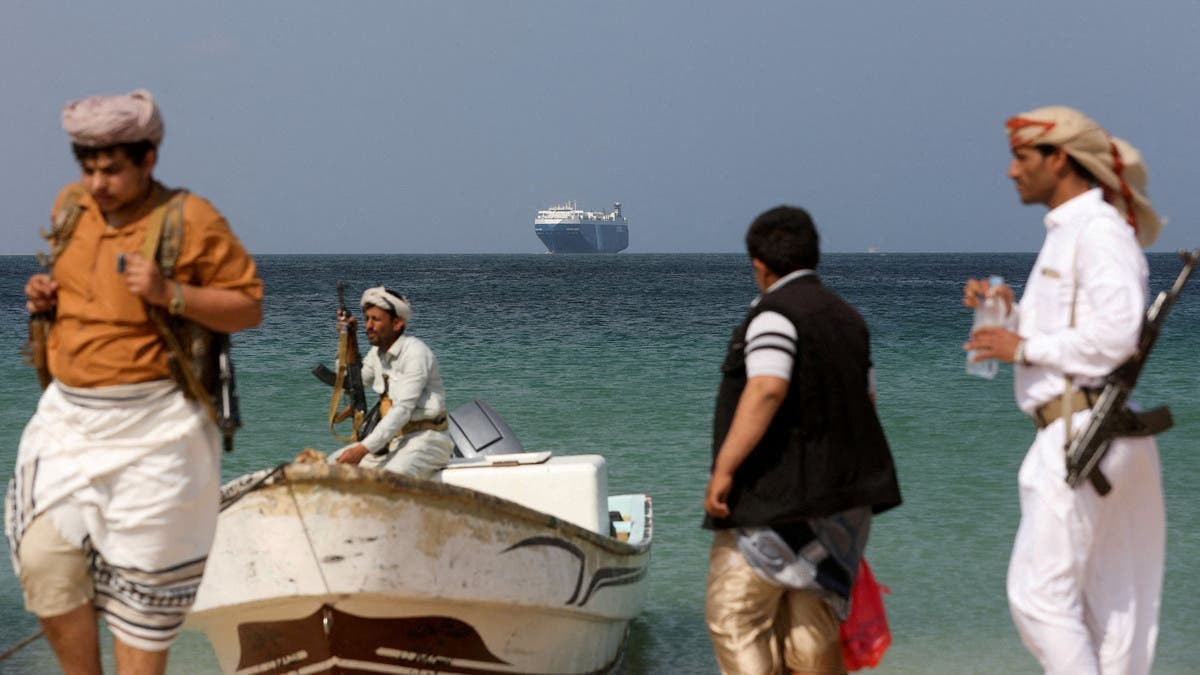Revealing huge sums of money received by the Houthis in exchange for allowing ships to pass through Bab al-Mandab


A Western diplomatic source told the Sheba Intelligence Agency that European companies began paying money to the Houthi militia about a month ago in exchange for the safe passage of their ships in the Red Sea.
The sources said that the money paid by European ships goes to external bank accounts belonging to companies owned and managed by the official spokesman for the Houthi group, Mohammed Abdel Salam.
The source estimated the average amount of money requested by the Houthis for each ship at about half a million dollars.
The source said: “There are ships that pay approximately a million dollars or less, and these amounts remain less than the operational cost that the ship needs if it passes through the Cape of Good Hope.”
According to information obtained by Sheba Intelligence, there is a significant decline in the number of ships sailing through the Red Sea, and preliminary estimates indicate that only 20% of them continue sailing in the Red Sea. Before the escalation in the Red Sea, 60 ships were crossing the Bab al-Mandab Strait in both directions.
But now about 12 ships cross this vital waterway daily, which means that the Houthis are making a daily profit of no less than six million dollars, according to the source.
It is possible that the Houthi group will receive $180 million per month, which means that its revenues will reach more than two billion dollars annually from ships in the Red Sea if the situation continues as it is now.
However, Houthi officials have repeatedly said that all ships are “safe” except for Israeli ships or ships linked to the US and UK that support the Israeli war on the Palestinians in Gaza.
The Europeans say that they have nothing to do with the American classification of the Houthis as a terrorist organization.
Luis Miguel Bueno, the European Union's regional media officer for the Middle East and North, said in an interview with Al Jazeera, "The European Union does not consider the Ansar Allah movement a terrorist organization, and there is no official or unofficial European decision to do so," and the decision to classify the Houthis is... An American decision only.”
On the contrary, the European Union announced yesterday the launch of the “ASPEDS” naval mission to help protect cargo ships in the Red Sea.
European Union foreign policy chief Josep Borrell said in a statement: “The European Union is responding quickly to the need to restore maritime security and freedom of navigation in a very strategic sea corridor.”
The statement added: “Within its defense mandate, the operation will provide maritime situational awareness, accompany ships, and protect them from potential multi-domain attacks at sea.”
The European Union said that the mission will operate along the main maritime lines of communication in the Bab al-Mandab Strait, the Strait of Hormuz, and international waters in the Red Sea, Gulf of Aden, Arabian Sea, Gulf of Oman and Gulf of Aden. Gulf.
Annalina Baerbock, German Foreign Minister, said: “It was important for me that we launched this mission because it means protecting our naval ships, but above all it shows that we as an international community stand together in the face of terrorist attacks and attacks.” Attacks on freedom of sea lanes.”